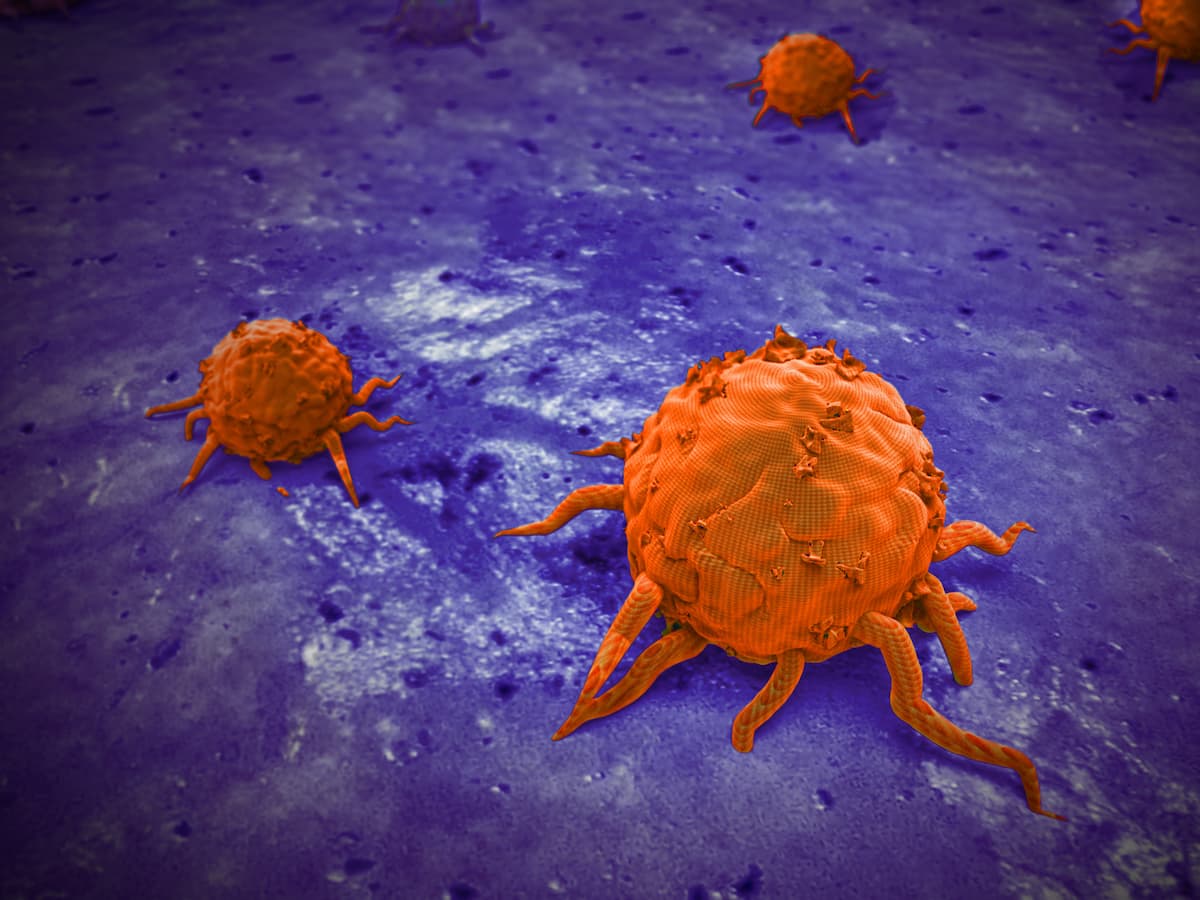Novel Therapy Receives FDA RMAT Designation in Localized Prostate Cancer
Full results from the phase 3 trial supporting CAN-2409 plus valacyclovir and radiation therapy in this indication will be presented at the 2025 ASCO Annual Meeting.
CAN-2409 with valacyclovir and radiation therapy demonstrated a 30% reduction in the risk for prostate cancer recurrence or death compared with placebo in patients with localized prostate cancer.

The FDA has granted Regenerative Medicine Advanced Therapy (RMAT) designation to CAN-2409 for the treatment of patients with newly diagnosed localized, intermediate-to-high-risk prostate cancer, according to a press release from the developer, Candel Therapeutics.1
Previously, the FDA granted fast track designation to CAN-2409 in the same indication and patient population.
Supporting results for the FDA’s decision came from a randomized, placebo-controlled phase 3 trial (NCT01436968) that evaluated the safety and efficacy of CAN-2409 plus valacyclovir and external beam radiation therapy in patients with newly diagnosed localized, intermediate-to-high-risk prostate cancer.
The developer released initial results from the trial in December 2024, highlighting the achievement of the primary end point, and plans to share more data at the 2025 American Society of Clinical Oncology Annual Meeting.2,3
CAN-2409 with valacyclovir met the primary end point of the trial, demonstrating statistically significant improvement in disease-free survival (DFS) over placebo with valacyclovir (P = .0155), with a 30% reduction in the risk for prostate cancer recurrence or death due to any cause (HR, 0.7). The DFS improvement was observed in both patients receiving androgen-deprivation therapy (ADT) and those not receiving ADT. Prostate-specific DFS was also improved with CAN-2409, with a 38% reduction of risk compared with placebo (HR, 0.62; P = .0046).
The proportion of patients who achieved a prostate-specific antigen (PSA) nadir of less than 0.2 ng/mL was 67.1% with CAN-2409 vs 58.6% with placebo (P = .0164). The pathologic complete response in the 2-year post-treatment biopsies was 80.4% after CAN-2409 and 63.6% after placebo (P = .0015).
“Receiving the FDA’s RMAT designation underscores the critical unmet need in patients with early, localized prostate cancer and validates the promising clinical activity observed with CAN-2409,” said Paul Peter Tak, MD, PhD, FMedSci, president and chief executive officer of Candel, in the press release.1 “This designation further supports the design of our phase 3 study, including the DFS primary end point agreed upon with the FDA during the [special protocol assessment] negotiation.”
A total of 745 patients were randomly assigned, in a 2:1 ratio, to receive CAN-2409 plus valacyclovir and radiation therapy with or without ADT (n = 496), or placebo plus valacyclovir and radiation therapy with or without ADT (n = 245). Patients were randomized and stratified for the use of short-term ADT.
Treatment consisted of 3 courses of CAN-2409 injection, delivered to the prostate via trans-rectal ultrasound guided injection, and oral valacyclovir; the first injection was given at least 15 days and no more than 8 weeks before starting radiation therapy, the second injection was given 0 to 3 days before the initiation of radiation therapy, and the third injection was given 15 to 22 days after the second injection.4 Valacyclovir was administered at a fixed dose for 14 days after each injection, and standard external beam radiation therapy was delivered to the prostate. The same procedures were followed in the placebo group, substituting CAN-2409 injection for the placebo injection.
Eligible patients had localized prostate cancer meeting the NCCN criteria of intermediate risk or had only one high-risk NCCN feature. Additionally, patients planned to undergo standard prostate-only external beam radiation therapy and had an ECOG performance status of 0 to 2.
Exclusion criteria included liver disease, receipt of systemic corticosteroids, regional lymph node involvement or distant metastasis, and known sensitivity or allergy to acyclovir or valacyclovir.
It was also reported that CAN-2409 was well tolerated; treatment-related serious adverse events (AEs) occurred in 1.7% of the CAN-2409 arm and 2.2% of the placebo arm. The most common CAN-2409-related AEs were flu-like symptoms, fever, and chills, the majority of which were mild-to-moderate in severity and self-limited.
Glen Gejerman, MD, MBA, co-director of Urologic Oncology at Hackensack Meridian Health, and one of the principal investigators of the study, said in a different press release, “The improvement in DFS shown in this trial is not only statistically significant, but also clinically meaningful…. Effective local control of prostate cancer is essential in patients who seek treatment with curative intent, as patients with positive prostate biopsies, 2 or more years after radical treatment, face a well-established higher risk of disease spreading within the pelvic region, developing distant metastases, and ultimately dying from prostate cancer during long-term follow-up.”3
References
- Candel Therapeutics receives FDA regenerative medicine advanced therapy designation for CAN-2409 for the treatment of prostate cancer. News release. Candel Therapeutics. May 29, 2025. Accessed May 29, 2025. https://tinyurl.com/65dj39fk
- Candel Therapeutics announces CAN-2409 achieved primary endpoint in phase 3 prostate cancer trial, showing significantly improved disease-free survival. News release. Candel Therapeutics. December 11, 2024. Accessed May 29, 2025. https://tinyurl.com/3rk6fm6z
- Candel Therapeutics presents positive phase 3 CAN-2409 results in localized prostate cancer at ASCO 2025. News release. Candel Therapeutics. May 22, 2025. Accessed May 29, 2025. https://tinyurl.com/5y7tn9ta
- Phase 3 study of ProstAtak® immunotherapy with standard radiation therapy for localized prostate cancer (PrTK03). ClinicalTrials.gov. Updated June 21, 2024. Accessed May 29, 2025. https://tinyurl.com/bddcy2k8